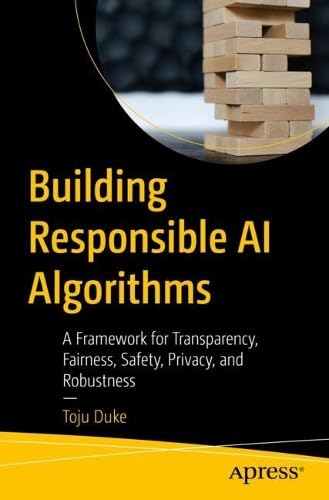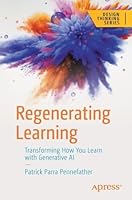
Building Responsible AI Algorithms: A Framework for Transparency, Fairness, Safety, Privacy, and Robustness
- Length: 207 pages
- Edition: 1
- Language: English
- Publisher: Apress
- Publication Date: 2023-08-10
- ISBN-10: 1484293053
- ISBN-13: 9781484293058
- Sales Rank: #5591646 (See Top 100 Books)
This book introduces a Responsible AI framework and guides you through processes to apply at each stage of the machine learning (ML) life cycle, from problem definition to deployment, to reduce and mitigate the risks and harms found in artificial intelligence (AI) technologies. AI offers the ability to solve many problems today if implemented correctly and responsibly. This book helps you avoid negative impacts – that in some cases have caused loss of life – and develop models that are fair, transparent, safe, secure, and robust.
The approach in this book raises your awareness of the missteps that can lead to negative outcomes in AI technologies and provides a Responsible AI framework to deliver responsible and ethical results in ML. It begins with an examination of the foundational elements of responsibility, principles, and data. Next comes guidance on implementation addressing issues such as fairness, transparency, safety, privacy, and robustness. The book helps you think responsibly while building AI and ML models and guides you through practical steps aimed at delivering responsible ML models, datasets, and products for your end users and customers.
What You Will Learn
- Build AI/ML models using Responsible AI frameworks and processes
- Document information on your datasets and improve data quality
- Measure fairness metrics in ML models
- Identify harms and risks per task and run safety evaluations on ML models
- Create transparent AI/ML models
- Develop Responsible AI principles and organizational guidelines
Who This Book Is For
AI and ML practitioners looking for guidance on building models that are fair, transparent, and ethical; those seeking awareness of the missteps that can lead to unintentional bias and harm from their AI algorithms; policy makers planning to craft laws, policies, and regulations that promote fairness and equity in automated algorithms







